Why Hearing Health Is Important To Our Employees
- davidmiller917
- Sep 10
- 4 min read
Updated: Sep 23

The impact of hearing on our employees as individuals
Have you ever found yourself struggling to follow a conversation, or nodding along in a meeting, when you only caught half of what was said? Or maybe you were on a video call and felt a wave of anxiety as you struggled to catch a key detail, silently trying to piece together the conversation in your head. That feeling of missing out, of constantly straining to understand, isn’t just annoying, it’s exhausting. And you're not alone; it's a feeling many of us know all too well. We often worry about being rude or that’ll it’ll be embarrassing to interrupt and ask them to repeat what they’ve said, especially when it looks like everyone else in the room understood them perfectly.
But why should we feel embarrassed to double check what somebody said? What if they’ve said something important – albeit quickly or even quietly – and they’re expecting us to use what they’ve said at a later date? Looking back and asking yourself “why didn’t I just double check what they said?”
The reality is changes to our hearing, including hearing loss, often happen so gradually that we barely notice them, but its impact can be felt in every part of our lives, from our career to our social life. Many of us try and ignore any problems when it comes to hearing, hoping it’ll just ‘go away’, and yet ignoring our hearing health often makes life more challenging.
For most of us, our ears are an afterthought. They're only considered when something goes wrong, like a sudden onset of tinnitus (ringing in the ears) or a noticeable drop in our ability to hear. However, waiting for a problem to surface means we’ve already missed the opportunity to take preventative action. It’s time we started treating our hearing health with the same proactive care we give to our teeth and eyes.
Why straining to hear can do more harm than we think
The impact of neglecting your hearing goes far beyond simply mishearing a word every now and then. Over time, we begin to normalise the feeling, ignoring it’s impact, and the gradual changes can cause feelings of isolation, anxiety, and depression. Imagine the exhaustion of constantly straining to follow conversations with friends or colleagues; it’s a mental strain that can make even the thought of social situations seem overwhelming, and eventually cause you to withdraw yourself and unintentionally create an isolated lifestyle.
Untreated hearing issues can also affect your concentration and cognitive function, making it harder to stay focused both at work and in your personal life. While you might unconsciously adapt to your hearing changes, developing research shows there are potential links between untreated hearing loss and an increased risk of cognitive decline later in life.
What you can do today to protect your hearing
The world has changed, and our ears are facing new challenges. With the rise of remote work and digital communication, many of us spend hours a day using earphones and headsets. Whilst this is flexible and convenient, prolonged exposure to sound, even at lower level volumes, can cause permanent damage if healthy listening habits aren’t maintained.
The good news is that you have the power to make a change. Here are a few simple, actionable steps you can take today:
Practice Safe Listening: Use the 60/60 rule. Listen to music or other audio at no more than 60% of the maximum volume, for no longer than 60 minutes at a time. Your inner ear has tiny hair cells that send signals to your brain; over-stimulation from loud noise can cause permanent damage to these cells over time.
Give Your Ears a Break: Make it a habit to take regular breaks from headphones and noisy environments. The eardrums are like any other muscle, in that overuse can actually lead to damage. Even a few minutes of quiet time can help your ears recover.
Get a Hearing Check: This is the best way to get a baseline for your hearing health. Getting an Audiologist to test your ear and hearing health is the only way to know what's normal for you, so when you get checked again in the future, comparisons can be made.
Advocate for Yourself and your colleagues: Start the conversation with your employer about what support is in place to encourage healthy hearing. Here are some questions you can ask your HR or People team:
- "Are hearing health services included in our company's health insurance plan?"
- "Is there an option for on-site hearing checks?"
- "What resources are available to help me practice safe listening habits at work?"
You could even share this article with them!
Hearing is a vital part of your personal health
Just as we consider regular dental checkups and eye tests to be simple, effective ways to understand our health, we should be normalising getting our hearing tested. It’s a crucial step in protecting your communication skills, enhancing your overall wellbeing, and maintaining a better quality of life.
Your hearing is a vital part of your personal health. Don’t wait until it goes wrong. Start the conversation with your company’s HR or People team today to ask what support is available, or get in touch with us to find out how we can help you.
Let's start the conversation and make ear health a priority. Get in touch with us to see how we can help you and your company.
Written by David Miller, Co-Founder of Workplace Ear Care






